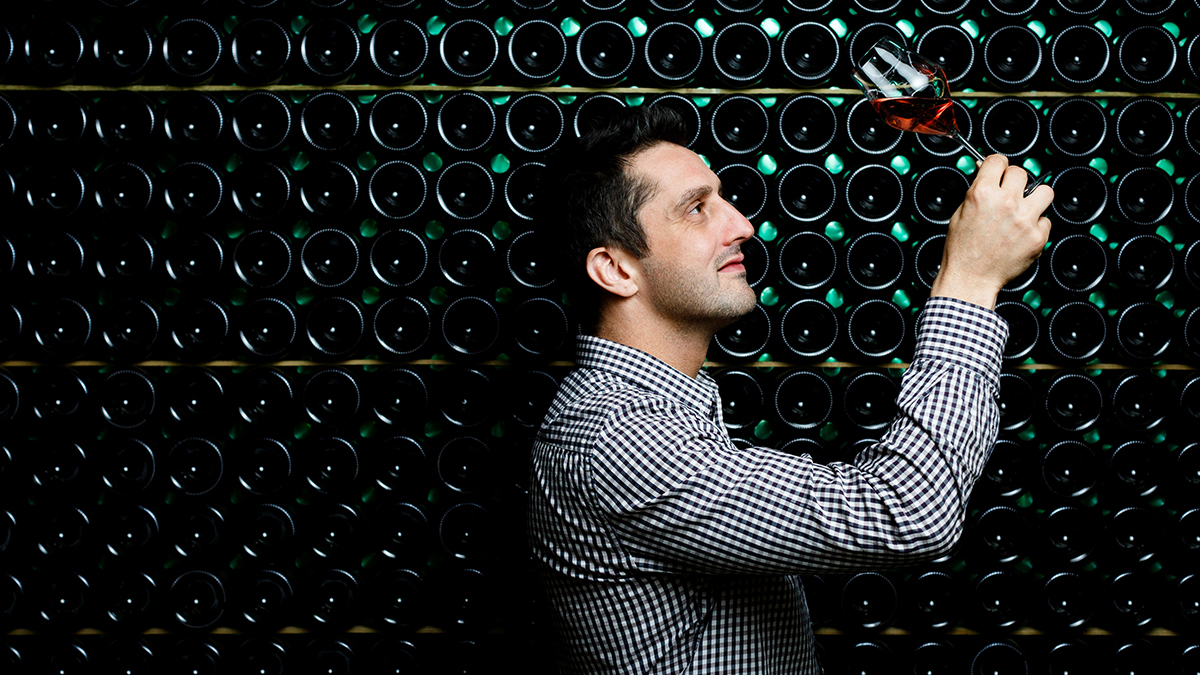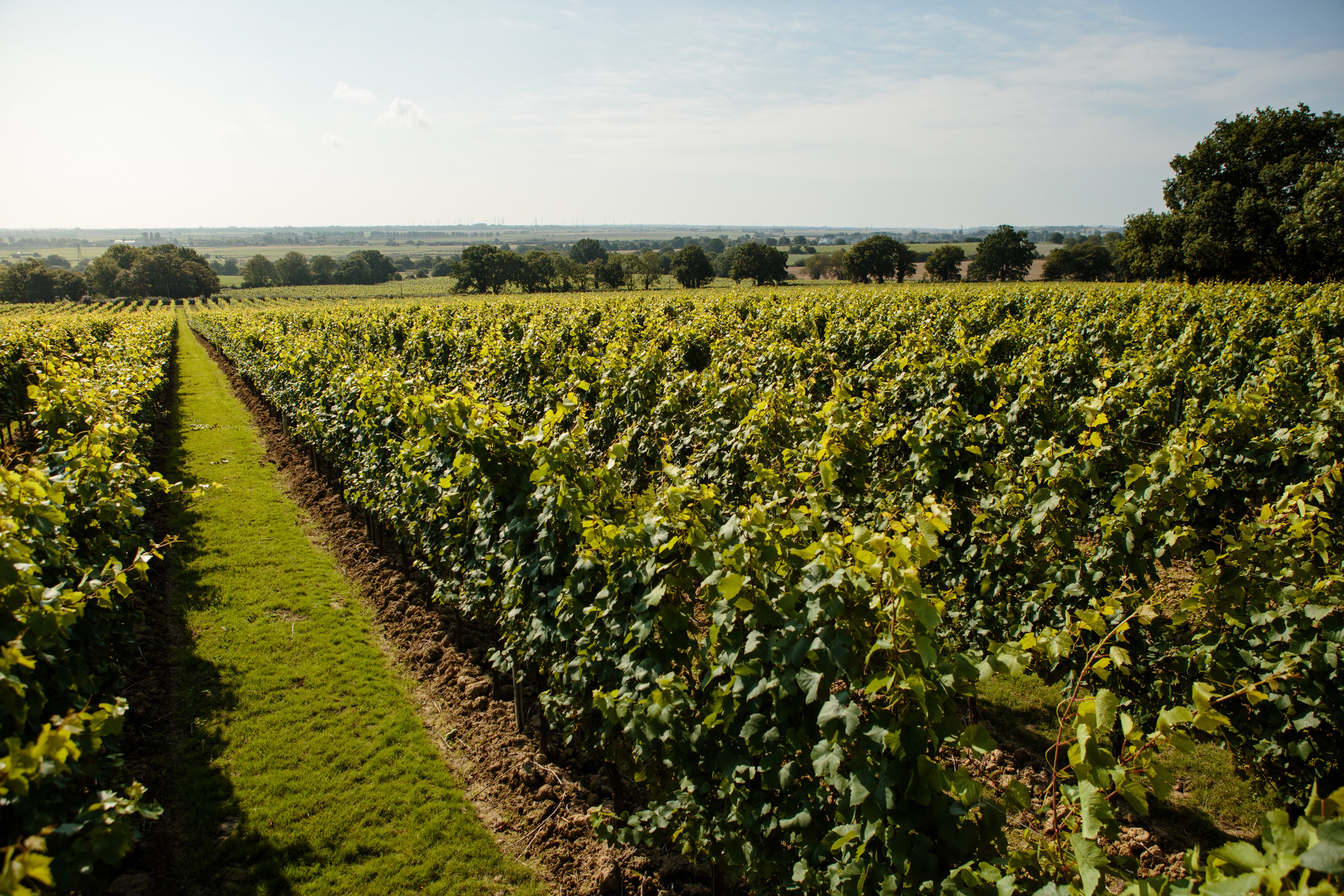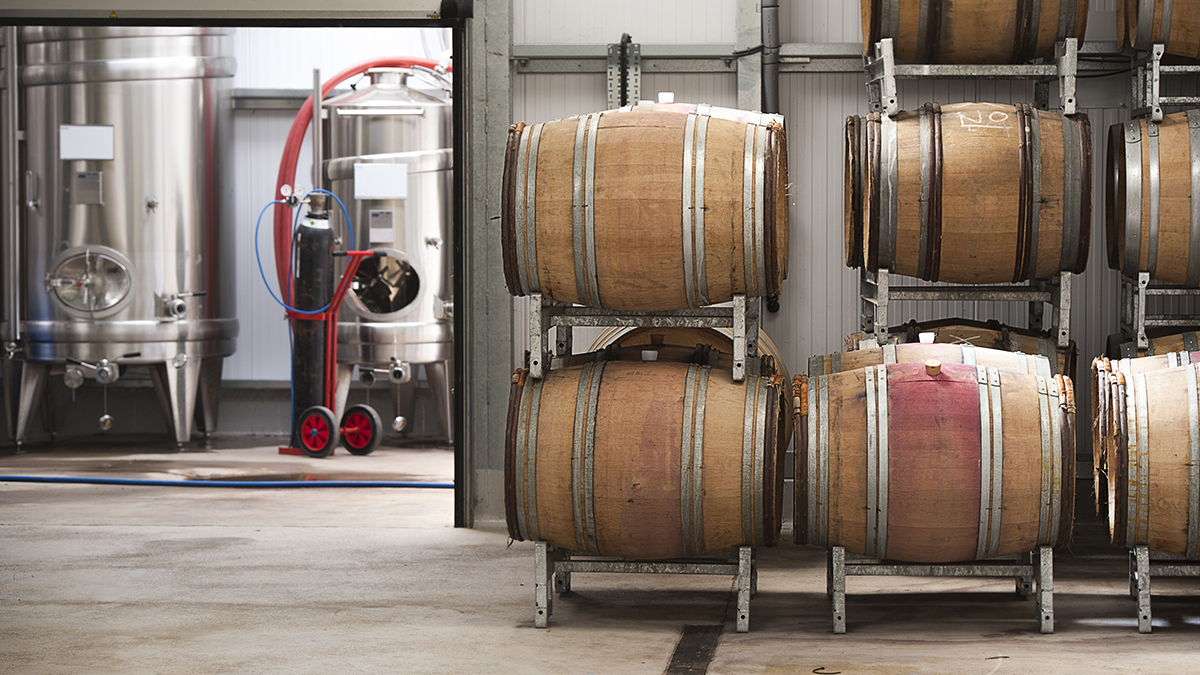Gusbourne toasts a new era of English winemaking
Sparkling whites and roses are enjoying an irrepressible rise on this side of the Channel, says chief winemaker Charlie Holland

A free daily email with the biggest news stories of the day – and the best features from TheWeek.com
You are now subscribed
Your newsletter sign-up was successful
Ten years ago, it was almost unthinkable that an English sparkling wine would hold its own against serious French champagnes. Yet when our sparkling rose was served blind in Paris recently, people not only mistook it for champagne, they unanimously preferred it.
Most of our vineyards are planted on the Gusbourne Estate in Appledore, Kent, and we also have four vineyards at the Selhurst Park Estate within the South Downs National Park, in West Sussex. Since Andrew Weeber founded Gusbourne in 2004, increasing numbers of wine producers have been popping up all over the south of England and two major champagne houses, Taittinger and Pommery, have announced they're going to be making wines in Kent and Hampshire in the next few years.
They can't expand their production in Champagne because it's capped there so in order to look for opportunities to grow, and to contend with the rise of sparkling-wine production in England, they've come to join the party. It's a very exciting time.
The Week
Escape your echo chamber. Get the facts behind the news, plus analysis from multiple perspectives.

Sign up for The Week's Free Newsletters
From our morning news briefing to a weekly Good News Newsletter, get the best of The Week delivered directly to your inbox.
From our morning news briefing to a weekly Good News Newsletter, get the best of The Week delivered directly to your inbox.

In the UK, we're at the northern extreme of where grapes can be grown and there are multiple factors to consider when selecting a vineyard location. The combination of low elevation and predominantly south-facing land on the Gusbourne Estate makes it ideal for growing grapes. Andrew bought the land here in 2003 and started planting a classic variety of chardonnay, pinot noir and pinot meunier grapes in 2004. The history of the estate can be traced right back to 1410 and during the 16th century, it was known as Gooseborne, carrying the crest of three geese, which we now use as an emblem on our bottles.
Soil is an important part of the puzzle for making great wine and, across our vineyards, we have a plethora of different types, including chalk, clay, flint and sand. Depending on the soil it's grown on, a wine will exhibit different traits and, for us, that's one of the factors that makes Gusbourne unique.
Low elevation is also key, as every hundred metres higher above sea level you go, you lose one degree centigrade over the growing season. Over time, that can have a big impact on quality. As our vineyards are from zero metres above sea level, we're one of the first producers to pick in England. Generally, the grape harvest in England is from around the very end of September to the beginning of October, but we've picked as early as 23 September – the sooner you can get the grapes in, the better.
Once our grapes have been hand-picked, we follow a very slow, meticulous process to make the wines. We gently press whole bunches, then settle the juice naturally for two to three days before fermenting it to create our base wines, allowing it to sit undisturbed on its yeast sediment for about six months. After that, there's a very careful blending process, which involves taking different components of the three different varieties in the winery, then painstakingly marrying them together to form our three core products: blanc de blancs, brut reserve and rose.
A free daily email with the biggest news stories of the day – and the best features from TheWeek.com

Once we're happy with the blends, we bottle the wines and introduce the yeast and sugar for the second fermentation. We age our wines for as long as it takes and the process of the yeast decomposing in the bottle takes about three years for sparkling whites. We then need to disgorge the yeast and introduce the dosage, which balances the final acidity and sweetness.
The process of disgorgement is turbulent, so, as part of the post-disgorgement aging process, we lay the wines down for six months to recover and we're one of the few producers to stamp the disgorging date on the label as a guarantee of quality.
We take our time and it's worth the wait.
CHARLIE HOLLAND honed his skills in Australia, Germany, New Zealand and the USA before taking the helm as chief winemaker at Gusbourne. With numerous international awards to his name, he has produced some of the most celebrated sparkling wines in the UK and beyond; gusbourne.com